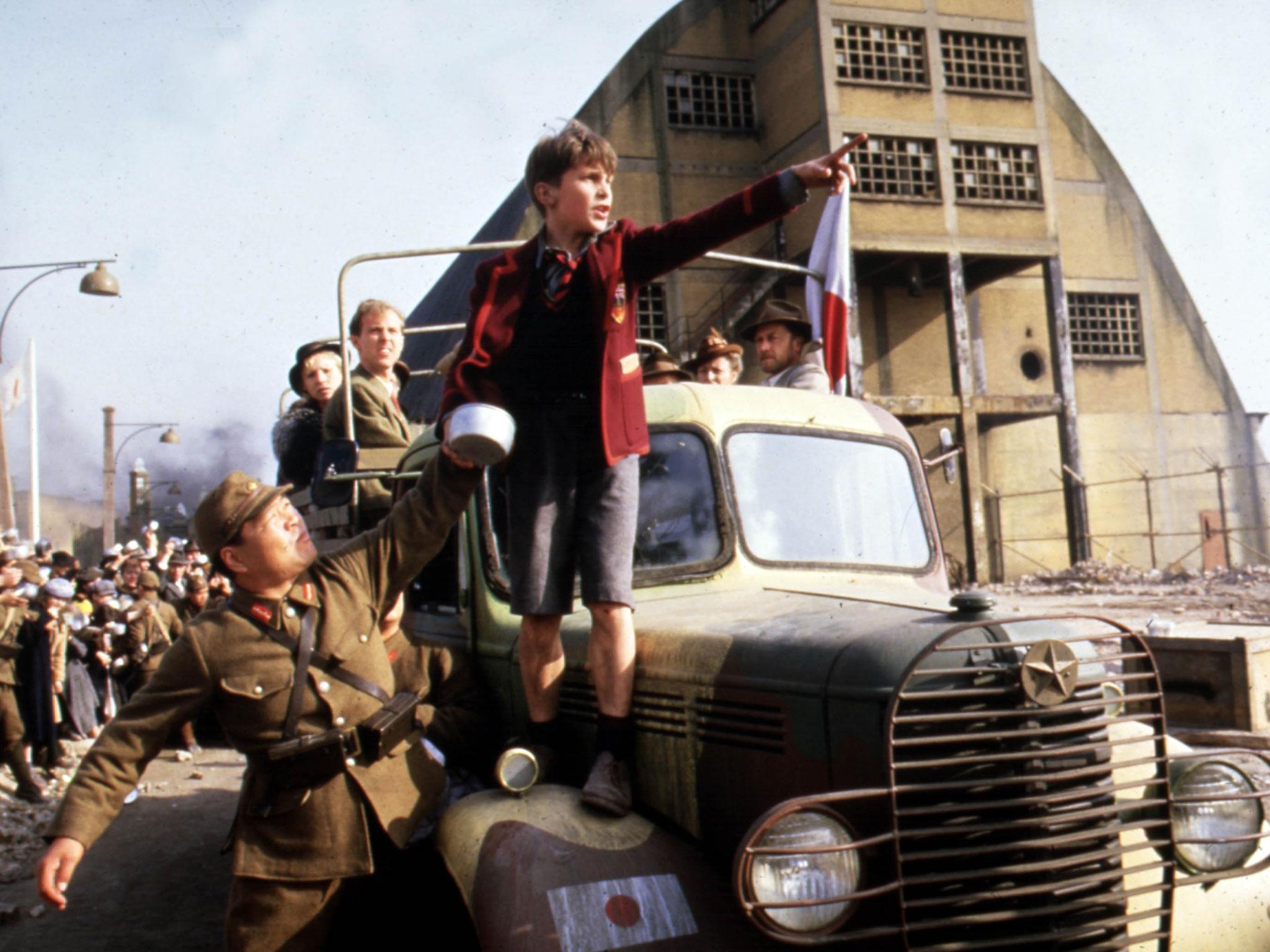Lunghua Civilian Assembly Centre: Teacher to reveal grim history of site of J G Ballard’s internment camp
The camp inspired the author to write his novel 'Empire of the Sun'

After decades of being suppressed because of its political sensitivity, the story of the wartime internment camp that inspired J G Ballard to write his semi-autobiographical novel Empire of the Sun is finally set to be made public.
Today, the grounds five miles from the city are home to the elite Shanghai High School. In 1941, when Japan controlled the city, it housed the Lunghua Civilian Assembly Centre.
There is little reference to the 42-acre camp beyond an information panel in the museum block and four pages in the 263-page history log. But now, after years of dealing with reluctant Communist authorities, a teacher at the school has gained permission to recall Lunghua’s history.
“It’s a story that needs to be told and not forgotten,” says Finnish-American history teacher Sven Serrano. The camp’s history was ignored to the extent that despite being a Ballard fan, when he arrived at the school in 2008 he had no idea the author had lived where he was stationed.
Ballard and his family were interned alongside 1,985 other Europeans and Americans from March 1943 until the end of the war, in August 1945. “What blew my mind was that G Block, where he stayed, was still there with teachers living in it,” Serrano says.
Steven Spielberg’s 1987 film adaptation of the book, starring a young Christian Bale, built a strikingly stark picture of life there. Many of the buildings depicted still stand. Serrano introduced the camp’s story to students through a history club and added Empire of the Sun to the school’s international division curriculum.
After meetings with his superiors last month, he was given permission to produce English-language literature for the school museum, train up tour guides and continue talks about getting Ballard on the local curriculum. He will launch a Lunghua app this summer, offering virtual tours.
“China is like America – there are chunks of history they like to skip over,” he says. “Lunghua doesn’t fit into the narrative of the Chinese resistance to the Japanese. It’s not necessarily that it’s unpleasant, just a little inconvenient. What I’ve been able to do is convince them that it... can be part of a positive image.”
A huge number of Chinese still resent Japan and recent territorial disputes over the South and East China Seas have brought these feelings to the fore again.
“The Chinese students here don’t like the Japanese,” says 16-year-old Cheryl Jiang, a Canadian with Chinese parents who is a member of the school’s International Division. “We are interested and want to hear more, but for them it’s harder...”
Serrano’s efforts have been welcomed by the camp’s surviving ex-internees. “It’s a good thing,” says 83-year-old John Bruce, a Briton born in Shanghai in 1930 who entered the camp with his parents aged 13. He lives near Doncaster, South Yorkshire, and visited the site in 2009. “I asked if there was any chance of getting a plaque up to say it used to be Lunghua,” he says.
Plaques are not part of Chinese culture, with the suggestion drawing a confused reaction from Liu Maoxiang, the school’s office director. “This is one part… all parts of the history of the school are important,” he says. “But we look forward to having more of it in the museum.”
With survivors keen to recall their stories plus offer letters and diaries, such a move should provide further insight into the lives of Western expat civilians during the conflict. Ballard, who died in 2009, described the camp in his memoirs as a “relaxed and easy-going world and I enjoyed my time in Lunghua, made a huge number of friends of all ages, and on the whole felt buoyant and optimistic”.
Competition for space in dormitories was tough. Sometimes families were separated, and although the guards were Japanese ex-consulate police rather than soldiers they often curbed rule-breaking with, according to Bruce, “a few cracks round the head”.
Meals were not highlights. “In the last 18 months of the war our rations fell,” Ballard wrote. “We sat… pushing what my mother called ‘the weevils’ to the rim of our plates of congee. My father decided we should eat them – we needed the protein. They were small white slugs, and perhaps maggots.”
“I didn’t eat much,” Bruce says. “Early on we had stew mixed with rice, some of the meat was from the greyhounds from the stadium in Shanghai where they’d all been killed.”
Bruce, whose father died in Lunghua of a heart attack, contests the author’s claim that he “roamed at the centre of a pack of boys my own age”.
“He was quiet and kept himself to himself. We used to sneak under the wire and go swimming, but he never used to join us,” he says.
Bruce is grateful for Ballard for providing a record of the camp in novel form. Now, after years of suppression, another record outside of literature is looking more likely.
Join our commenting forum
Join thought-provoking conversations, follow other Independent readers and see their replies
Comments